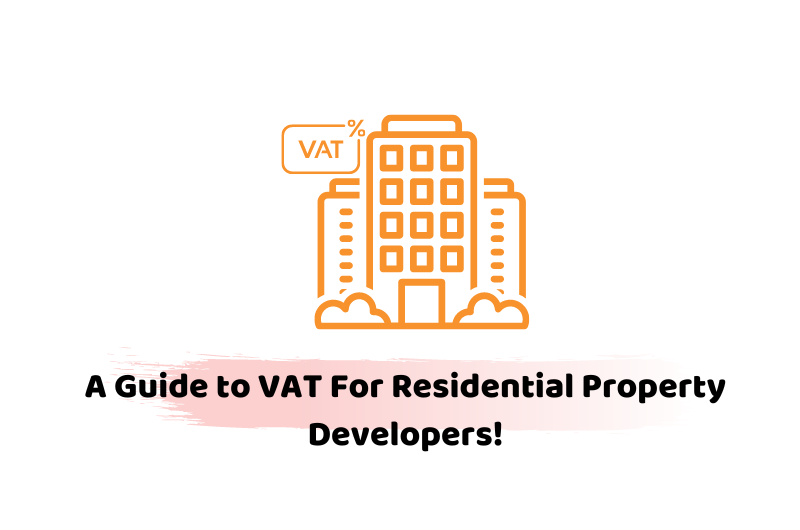It is considered a challenging and long-winded task when you have to deal with the conversion of a property. It requires a long period of time, which makes it a time-consuming task as well. You might be surprised that it takes months or even years to achieve completion.
There is an obvious physical involvement of labour to ensure the development of the property. Further, affairs like VAT on property development and other tax-related matters like costing might not get enough attention.
This side of handling costs, taxes, and VAT on property development should not be overlooked. There is no doubt that all businesses across the world have had a tough time handling the complexity of VAT. If you are worried about ways to seek a balance between labour work and relevant tax affairs, we have got you covered here.
In this guide, we will help you with everything that you need to know about the main VAT considerations that you will need to apply for to be a residential developer. This includes VAT on property development, conversion, and construction of new and old properties.
Get in touch with one of our professionals to learn more about VAT on property development. We will love to hear out your queries and provide instant solutions.
VAT on Property Development: New Residential Buildings
When the time comes to finally build a residential property, the major and the very first grand is that it is considered zero-rated for VAT. In the case of partially constructed residential properties, the rule remains the same. This is because the property, known as partially constructed property, is not yet in the construction phase. On the other side, when the property developers are working on a project where they aim to convert a non-residential property into a residential property, the first grant advantage will remain the same again.
The good news about the zero-rating is that a 0% VAT will be charged for the developers who are offering these kinds of taxable supplies. Moreover, the amount of cost involved in this process will be charged with VAT, and they are liable to get full recovery in this matter. You need to know that the first grant is only given when the supplies are handled by the same individual who is involved in the conversion or construction of your property. There are chances of mismanagement in this part as the status of developers tends to be used by multiple people. This happens in many cases.
Conversion and Construction—VAT Explained
Now, we all know that the supplies that are delivered to the builders to construct or convert a property are considered to be zero-rated. Moreover, what is important to know more about is the services that are used in the process of construction or conversion of a building. Surveyors and architects are a few examples of such services. These services are excluded from the list of zero-rated supplies and belong to the standard-rated list.
Furthermore, if you are wondering if there is any possibility that such services are zero-rated too, you will only find exceptions when the services, like architects and others, are a part of the building design project. The design of a building, when associated with the building part, can be dealt with as a zero-rated supply. The material supply that is used to construct the buildings will also be treated as zero-rated. However, other than the services, if such materials are supplied on their own, liability will come under the standard rate.
Therefore, you must understand the difference between what materials and services can be treated as zero-rated or standard-rated. Some of the conversions of buildings can benefit from reduced VAT charges. You must notify the list of residential conversions that are allowed to take advantage of the reduced ratings. These include the following:
- If you observe a change in the dwelling numbers, like a single residence or a converted block of flats.
- Also, when a property developer aims to convert a commercial property into a residential property.
Moreover, in cases where the builders aim to redecorate an old building, the number of homes in that particular building remains the same. All the services included in such projects will come under the list of standard rates.
The Bottom Line
Now that you have gathered a fair amount of information about VAT on property development, we can bring the discussion toward wrapping up. We can say that we do not deny the complexity of handling VAT and relevant variations, especially in the case of property developers. However, having a better understanding of VAT and how it is charged on materials, supplies, and services according to different scenarios of building construction will keep you protected from any hassle in the future.
You are advised to consult with an expert to identify which category belongs to your case of property conversion or construction. We hope these few minutes of reading will help you develop a better understanding and handle your VAT charges more efficiently.
Call or request a callback to speak to one of our professionals to discuss your queries about VAT on property development. We are available from 9:00 am – 05:30 pm Monday to Friday.
Disclaimer: The information about VAT on property development provided in this blog includes text and graphics in general. This does not intend to disregard any of the professional advice.





















































